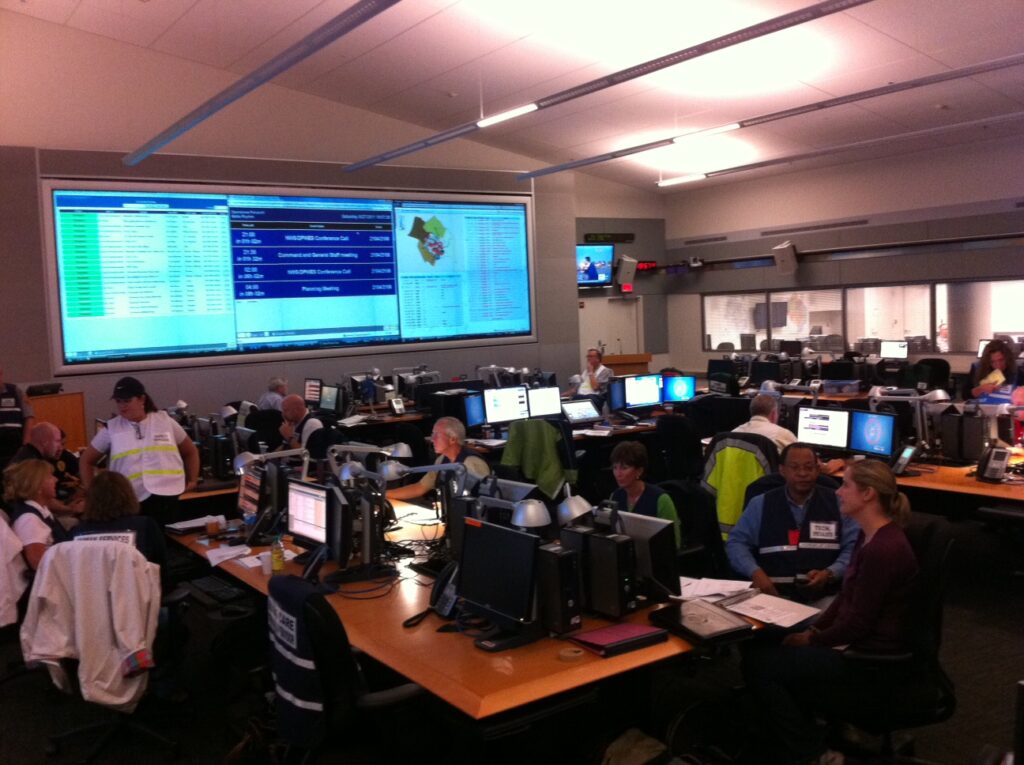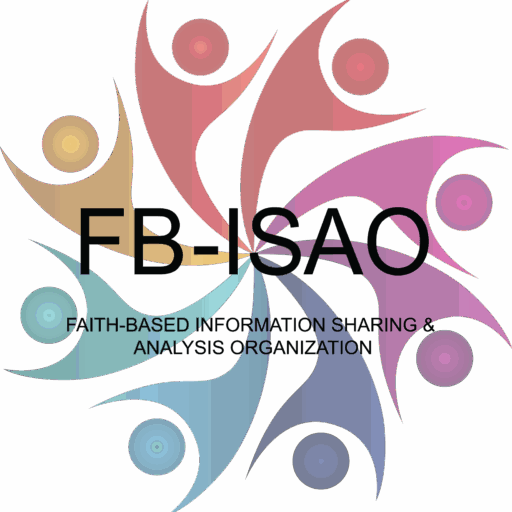
Information Sharing and Analysis Organizations are about building a trusted community for sharing information. FB-ISAO is a trusted community within the inclusive, community of faith. The ISAO and members maintain primary focus on sharing timely, actionable and relevant information with one other – with an all-hazards approach as incidents affecting our community have come in the form of physical threats, cybersecurity issues, health outbreaks, and a variety of natural disasters. FB-ISAO also fosters the building of relationships and networking across our community. FB-ISAO collaborates with our members, other ISACs and ISAOs, government agencies and law enforcement partners, and communities we work with across the country, and worldwide, because threats are no longer limited by geography, nor are they solely the responsibility of our public servants. In that light, and to foster collaboration in Fairfax County, I had a chance to visit the Emergency Management Center in Fairfax County, Virginia this past week.
My visit was focused on outreach efforts to Faith-Based Organizations (FBOs) in Fairfax County and the need for collaboration betweenFB-ISAO and local government in order to help FBOs become more resilient. I had a chance to meet with Fairfax County’s Interfaith Coordinator as well. Many local governments have interfaith coordinators now due to the need for FBOs to be well connected and well represented at the local level.
While fostering collaboration was the primary purpose of my visit, I was offered a bonus tour of the Emergency Management Center (EMC) floor. First hand, I was able to see how and when the center is spun up, who participates in crisis situations and what each agency’s role is during a crisis. Fascinating stuff for a lay-person! I was also shown (by way of a glass window) the County’s 911 dispatch facility. I was captivated by the number of personnel on the floor, the many functions that are available to 911 dispatch and how those resources are used and in what circumstances.
All of that got me thinking about how beneficial it would before FBOs to reach out to their local government partners, including emergency operations centers and fusion centers, and to establish relationships with them to enhance their hometown security and increase resilience. By knowing how local governments centers operate in steady state and how they respond to emergencies, an FBO, and the community it serves, are better able to prepare and to deal with an emergency. Here are some of the things that can be accomplished if an FBO establishes a relationship with local government:
- Work with local government to coordinate and conduct public emergency management activities and educational programs to increase awareness on emergency preparedness for the FBO itself and its congregants;
- Set the stage for the eventual development of an Emergency Operations Plan (EOP);
- Liaise to prepare for, effectively respond to, and quickly recover from emergency events, and;
- Gain access to useful references (many of which can also be found on the FB-ISAO Resources page) and templates.
Emergencies are just that – emergencies – they are not planned. Violent acts, fires, tornados, floods, hurricanes, earthquakes, and arson are incidents that occur with little to no warning. It is incumbent on FBOs and particularly houses of worship to work towards developing and updating plans and procedures to ensure the safety and security of their congregations, staff, and facilities. One of the first steps in building those plans and ultimately that resilience is likely reaching out to local government to coordinate emergency response. Who knows, you might even get a tour of the EMC!


